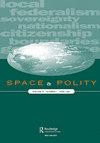Where is artificial intelligence? Geographies, ethics, and practices of AI
IF 1.1
Q2 GEOGRAPHY
引用次数: 3
Abstract
Artificial Intelligence (AI) is increasingly influential in our daily lives, shaping the social structures, economies, and political systems in which we live. From autonomous vehicles to algorithmically powered legal decisions, AI-driven technologies have the potential to offer nearly $16 trillion to the global economy in the next 10 years. Advances in AI are likely to fundamentally alter a range of industries and economic activities, while also ushering in a period of rapid innovation across scales. Yet the development and application of AI often unfold with only limited input from those outside computational fields. Within geography, important scholarship on AI has started to emerge from digital geographies (e.g. Dodge, 2019) and geospatial science (e.g. Janowicz et al., 2020), as well as subfields including political geography (e.g. Amoore, 2019), social geography (e.g. Del Casino et al., 2020; Wigley & Rose, 2020), and environmental geography (e.g. Machen & Nost, 2021), but less attention has been given to AI’s potentialities and ramifications in relation to place, space, and other foundational concepts in human geography. In addition, the role of qualitative research within the larger onto-epistemological landscape of AI remains largely overlooked. The articles included in this special issue offer a broad, yet critical, conversation about the geographies, ethics, and practices of AI. Spanning themes from the future of work and workers to the intimacies of care, from borders and wargames to science fiction and economic modelling, they engage what Casey Lynch (this issue) describes as ‘AI’s evolving spatiality’. They do so by historicizing AI vis-à-vis previous technologies and paradigms in geography, by synthesizing across diverse AI literatures within and beyond academia, by offering in-depth case studies on particular applications of AI, and by theorizing AI itself alongside capitalism, science fiction, and other themes. Together, authors ask, given geography’s long history of analytical and operational insights with other technologies, including GIS (e.g. Barnes, 2008; O’Sullivan, 2006, 2008), what does growing interest in AI mean for geography?What can geographers contribute to these emerging technologies and fields, and how does a geographic perspective help us understand the application and implications of AI systems? In thinking through these questions, the contributions in this special issue critically interrogate foundational questions and topics in human geography through the lens of AI: the politics of AI in different spatial contexts or spheres, AI’s impacts on the人工智能在哪里?人工智能的地理、伦理和实践
人工智能(AI)在我们的日常生活中越来越有影响力,塑造着我们生活的社会结构、经济和政治制度。从自动驾驶汽车到算法驱动的法律决策,人工智能驱动的技术有可能在未来10年为全球经济提供近16万亿美元的价值。人工智能的进步可能会从根本上改变一系列行业和经济活动,同时也会迎来一个跨规模的快速创新时期。然而,人工智能的发展和应用往往是在计算领域之外的有限投入下展开的。在地理学领域,关于人工智能的重要学术研究已经开始从数字地理学(例如Dodge, 2019)和地理空间科学(例如Janowicz等人,2020)以及包括政治地理学(例如Amoore, 2019)、社会地理学(例如Del Casino等人,2020;Wigley & Rose, 2020),以及环境地理学(例如Machen & Nost, 2021),但人们对人工智能在人文地理学中与地点、空间和其他基本概念相关的潜力和后果的关注较少。此外,定性研究在人工智能本体-认识论领域的作用在很大程度上仍被忽视。本期特刊中的文章提供了关于人工智能的地理、伦理和实践的广泛而关键的对话。从工作和工人的未来到护理的亲密关系,从边界和战争游戏到科幻小说和经济建模,他们参与了凯西林奇(本期)所描述的“人工智能不断发展的空间性”。他们通过将人工智能与-à-vis以前的地理技术和范式历史性地结合起来,通过综合学术界内外的各种人工智能文献,通过提供关于人工智能特定应用的深入案例研究,以及通过将人工智能本身与资本主义、科幻小说和其他主题理论化来实现这一目标。同时,作者提出,考虑到地理学与其他技术(包括GIS)的分析和操作见解的悠久历史(例如Barnes, 2008;O 'Sullivan, 2006, 2008),对人工智能日益增长的兴趣对地理学意味着什么?地理学家可以为这些新兴技术和领域做出什么贡献?地理视角如何帮助我们理解人工智能系统的应用和影响?在思考这些问题时,本期特刊的贡献通过人工智能的视角批判性地询问了人文地理学的基本问题和主题:人工智能在不同空间背景或领域中的政治,人工智能对人类社会的影响
本文章由计算机程序翻译,如有差异,请以英文原文为准。
求助全文
约1分钟内获得全文
求助全文
来源期刊

SPACE AND POLITY
GEOGRAPHY-
CiteScore
4.10
自引率
4.20%
发文量
19
期刊介绍:
Space & Polity is a fully refereed scholarly international journal devoted to the theoretical and empirical understanding of the changing relationships between the state, and regional and local forms of governance. The journal provides a forum aimed particularly at bringing together social scientists currently working in a variety of disciplines, including geography, political science, sociology, economics, anthropology and development studies and who have a common interest in the relationships between space, place and politics in less developed as well as the advanced economies.
 求助内容:
求助内容: 应助结果提醒方式:
应助结果提醒方式:


